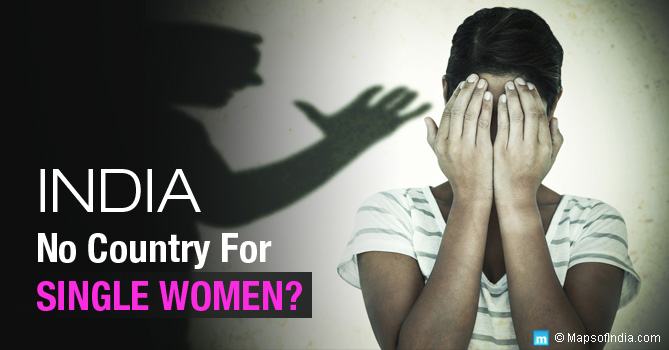As India accelerates into the 21st century trying to play catch up with developed nations, legacy and emerging social issues are holding back the nation from realising its full potential.
One of the biggest social challenges in India today relates to general perception towards women, especially single women. The constitution states all men and women are equal by right, but in practice they are not and have never been equal.
Our society evolved with the belief that a woman’s existence was mainly for giving birth to children, rearing them and providing food for the entire family. Beyond this, there was little expectation or allowance for any other activity.
In India today, women are increasingly beginning to assert their right to equality and freedom to choose their own career path. This assertion is facing strong resistance from parents, family members and society in general, depending on the community she belongs to and where she hails from.
Girls who choose not to marry and remain single face even greater challenges and they remain caught up between ambition, perception and reality.
Toggling between ambition and perception
In rural and semi-urban areas, girls with an ambition to study and later build a career for themselves, are discouraged and even looked down upon. From an early age, they have to face barbs and threats that no one will marry them if they continue to study or work.
This is actually quite true. In villages and smaller towns, most young men are either completely illiterate or partially literate. Finding young men of marriageable age who are graduates is a challenge and therefore, they avoid an educated girl since she is expected to be independent and a threat to her in-laws’ and husband’s authority. This is why girls’ parents tend to keep them away from too much education.
In urban areas and metros, the sheer cost of living forces men to encourage their wives and daughters to work and supplement the family income. But the reasons are economic and not social enlightenment on gender equality.
In this backdrop, for a young girl to stand up and say that she wishes to study, live and work in the city all by herself, is still a big no-no. If she comes from a rural area, she is viewed as a social outcast that no man from the village would like to marry.
If her family lives in an urban area then there is a greater chance of acceptance by the family, but this acceptance is subject to the amount she earns. A successful and single, working girl is very welcome but a single, working girl with a low- or moderate-income has to face barbs from the family.
The family constantly questions her ‘abnormal’ decision to remain single and feels embarrassed facing relatives and community on her account. They continue to plead and pressure her to get married. The ambition to pursue a career and remain single are choices where women find themselves isolated. Is this justified?
The reality of living alone
Girls and women must have the complete freedom to choose their life and career path. But those who have chosen to remain single face all kinds of obstacles in leading a free life.
A single woman living alone in a city is viewed with outright suspicion. Behind the back discussions debate the reasons for her remaining single and centre around whether she is available, immoral or a lesbian. Few are willing to accept that she may be none of those and is just someone wishing to lead her life alone and in a manner that she chooses. But that’s a hard pill to swallow for many.
As she moves about in her locality or even her place of work, she happens to be the centre of everyone’s attention. Men do the usual sniggering while wives remain suspicious of her intentions.
But is it easy to live alone in India?
Beyond society and perception, this is the other reality that single women must contend with. Simple things like house owners refusing to let out to single women can be a real challenge. Another reality is the lack of social security. Women who decide to remain single and independent have to factor in medical care.
Unlike welfare states like Canada, going in alone for hospitalisation or in the post-hospitalisation phase in India, single women can face some real challenges. If the illness is prolonged, women will find it very difficult to survive by themselves. Then there is old age to think of.
In case a woman wishes to raise a child by herself, then that presents its own set of challenges. Single women will discover during school admissions that many schools seem to shun single parents though none will admit it openly. This is just one of the many factors that women will have to consider as they decide to spend their life by themselves.
Loneliness, especially in older ages, is the worst situation to find oneself in. Single women will discover that all their old friends and acquaintances will have lesser time to meet as they themselves deal with problems of old age and family issues.
Acceptance and support is what is needed
What women in general, and single women in particular need, is a society that is more accepting and receptive to single women just as they would for single men. It is time we shed our age-old gender biases and adopt the equality our constitution guarantees, in true letter and spirit.
If India wishes to be recognised as a developed nation, we will have to emerge as a progressive society where all women are treated equal, in respect and opportunity.
Whether single, in a relationship, or a family, women must have the right to choose their options just as much as men have their freedom. It’s time to tell our women: “You may be single but you are not alone.”




